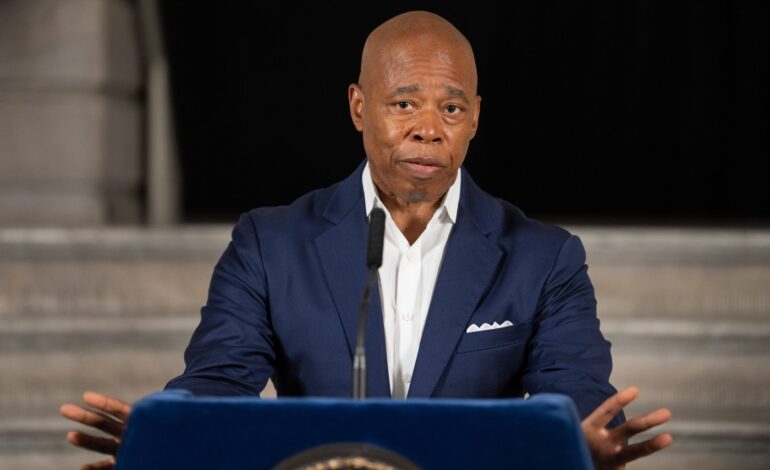Judge Rules Against NYC’s Plan to Allow ICE on Rikers Island

A Manhattan judge has ruled against a proposal by New York City Mayor Eric Adams to allow federal immigration authorities to operate on Rikers Island. The ruling, issued by Judge Mary Rosado, deemed the action ethically “impermissible” due to its timing, which coincided with the controversial dismissal of the mayor’s corruption indictment by the former president’s Department of Justice.
The initiative dates back to April 8, 2023, when Randy Mastro, Adams’ first deputy mayor, signed an executive order aimed at permitting Immigration and Customs Enforcement (ICE) agents to reopen an office on Rikers. The purpose was to facilitate criminal immigration enforcement within the city’s jail system.
The order sparked significant backlash from City Council Democrats, who subsequently filed a lawsuit. They argued that the executive decision constituted an illegal favor to Donald Trump in exchange for the dismissal of Adams’ criminal case. Council members claimed that the prosecution was hindering the mayor’s ability to support Trump’s immigration agenda, which included mass deportations.
In her seven-page ruling released on Monday, Judge Rosado sided with the City Council Democrats, declaring the executive order “null and void.” She emphasized that the order violated city law, which prohibits public officials from making decisions when there exists a personal conflict of interest.
“The timeline of public statements and the ongoing criminal prosecution so clearly demonstrate an impermissible appearance of a conflict of interest,” Rosado stated in her ruling. She further noted that Adams’ failure to recuse himself from the matter compromised the integrity of the process.
Spokespersons for Mayor Adams did not provide immediate comments regarding the ruling. This decision marks a significant moment in the ongoing debate over immigration enforcement and the intersection of local governance and federal authority.
The implications of this ruling extend beyond the immediate legal landscape, as it raises questions about ethical governance and the responsibilities of public officials in maintaining the integrity of their offices. As the situation continues to unfold, it remains to be seen how the Adams administration will respond to this significant judicial decision.






